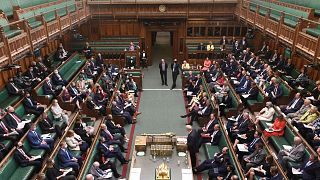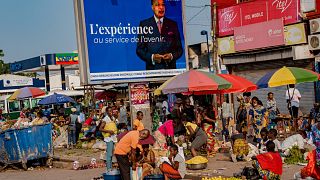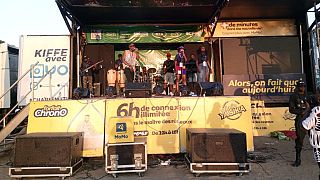Republic of the Congo
Polls opened for the second round of parliamentary elections in the Republic of Congo on Sunday.
A section of the opposition has continued to boycott the polls after the ruling party and its allies won a parliamentary majority in the first round held on July 16.
Out of the 151 seats the ruling party headed by president Dennis Sassou Nguesso clinched 72 seats.
The opposition continues to fault Congo’s electoral body for organizing what it termed as shambolic elections.
The elections come even as the International community raises concern over crisis in Congo’s Pool Region where the first round of elections excluded nine constituencies due to violence.
Background
Following a 2015 referendum on a new constitution, President Denis Sassou Nguesso was re-elected in the March 2016 presidential elections. The 2017 parliamentary elections were the first elections to the National Assembly held under the 2015 constitution. In the previous parliamentary election, held in 2012, Sassou Nguesso’s party, the Congolese Party of Labour (PCT), won a majority of seats.
The PCT fielded candidates in 128 out of 151 constituencies in the 2017 election, far more than its rivals.Aside from the PCT, candidates from various smaller parties and independent candidates also supported Sassou Nguesso, and in many cases the competition for seats was mainly between supporters of the President.
The opposition has been divided on whether to participate. The Pan-African Union for Social Democracy (UPADS) opted to contest the elections, although it fielded candidates in only 43 constituencies, a fact that UPADS leader Pascal Tsaty Mabiala blamed on the increased cost of candidate deposits.
Guy-Brice Parfait Kolélas, who placed a distant second behind Sassou Nguesso in the 2016 presidential elections, also chose to participate, leading a new party, the Union of Humanist Democrats (UDH-Yuki) which fielded candidates in 31 constituencies.
However, other elements of the opposition, grouped together in a coalition led by Claudine Munari, refused to participate, arguing that Sassou Nguesso’s re-election was illegitimate and that it would be improper to hold an election while the Pool Department was suffering from renewed fighting involving “Ninja” rebels under Frédéric Bintsamou.












01:52
Togo’s security forces cast early votes ahead of high-stakes municipal elections
Go to video
Togo suspends French state-owned broadcasters RFI and France 24
Go to video
Protesters gather in Ivory Coast, demand Thiam's return on electoral list
02:13
Cameroon: Police, opposition supporters clash as election looms
01:25
Burundi awaits results of local and parliamentary elections
Go to video
Chad detains former prime minister Masra after deadly clashes